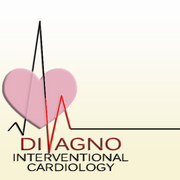An Introduction to Peripheral Artery Disease

Peripheral artery disease is a circulatory condition in which plaque buildup in the arteries restricts blood flow to the limbs. PAD is a widespread heart health problem, affecting some 8.5 million Americans, many of whom are over the age of 60. Below is an introduction to this common condition.
What Is Peripheral Artery Disease?
Symptoms
The primary symptoms of PAD include pain, weakness, cramping, or numbness in the legs or feet, often when walking; discomfort tends to get better with rest. The hips or buttocks may experience these symptoms as well. PAD can cause hair loss on the legs and feet, and the skin in these areas can become shiny or take on a pale or bluish color. The feet or legs sometimes feel cold. If you have sores or ulcers on the legs or feet, they may take a long time to heal, or they may not heal at all.
Risk Factors
PAD is caused by atherosclerosis, an accumulation of fats on artery walls. There are a number of factors that can contribute to atherosclerosis, with the most common being diabetes, high blood pressure, high cholesterol, and smoking. People with a family history of heart health issues, like coronary artery disease or heart attacks, are at increased risk of developing atherosclerosis.
Prevention & Treatment
 To prevent PAD and improve your overall heart health, one of the best things you can do is cardiovascular exercise, which encourages healthy blood that naturally opens narrowed arteries; moderate cardio even a few times a week can be helpful. Watch your diet and restrict unhealthy fats as much as possible. If you smoke, make a plan to quit. Your doctor might prescribe cholesterol- or blood pressure-lowering medications as a preventative measure.
To prevent PAD and improve your overall heart health, one of the best things you can do is cardiovascular exercise, which encourages healthy blood that naturally opens narrowed arteries; moderate cardio even a few times a week can be helpful. Watch your diet and restrict unhealthy fats as much as possible. If you smoke, make a plan to quit. Your doctor might prescribe cholesterol- or blood pressure-lowering medications as a preventative measure.
PAD intervention treatments include angioplasties and atherectomies. In an angioplasty, a small balloon is inserted into compromised arteries and then gently inflated to open them and promote blood flow. Atherectomy is the removal of plaque from artery walls with a small device that essentially shaves off plaque buildup. During these procedures, you are under anesthesia and feel no discomfort.
DiVagno Interventional Cardiology, MD, PA, offers PAD intervention treatments to patients throughout the Bergen County, NJ, area. With more than 20 years' experience, Dr. Leonard DiVagno and his team are committed to your heart health. In addition to PAD, they address a number of cardiac issues, including heart disease, coronary artery disease, and structural heart issues. Call (201) 845-3535 or visit them online to schedule an appointment today.
About the Business


